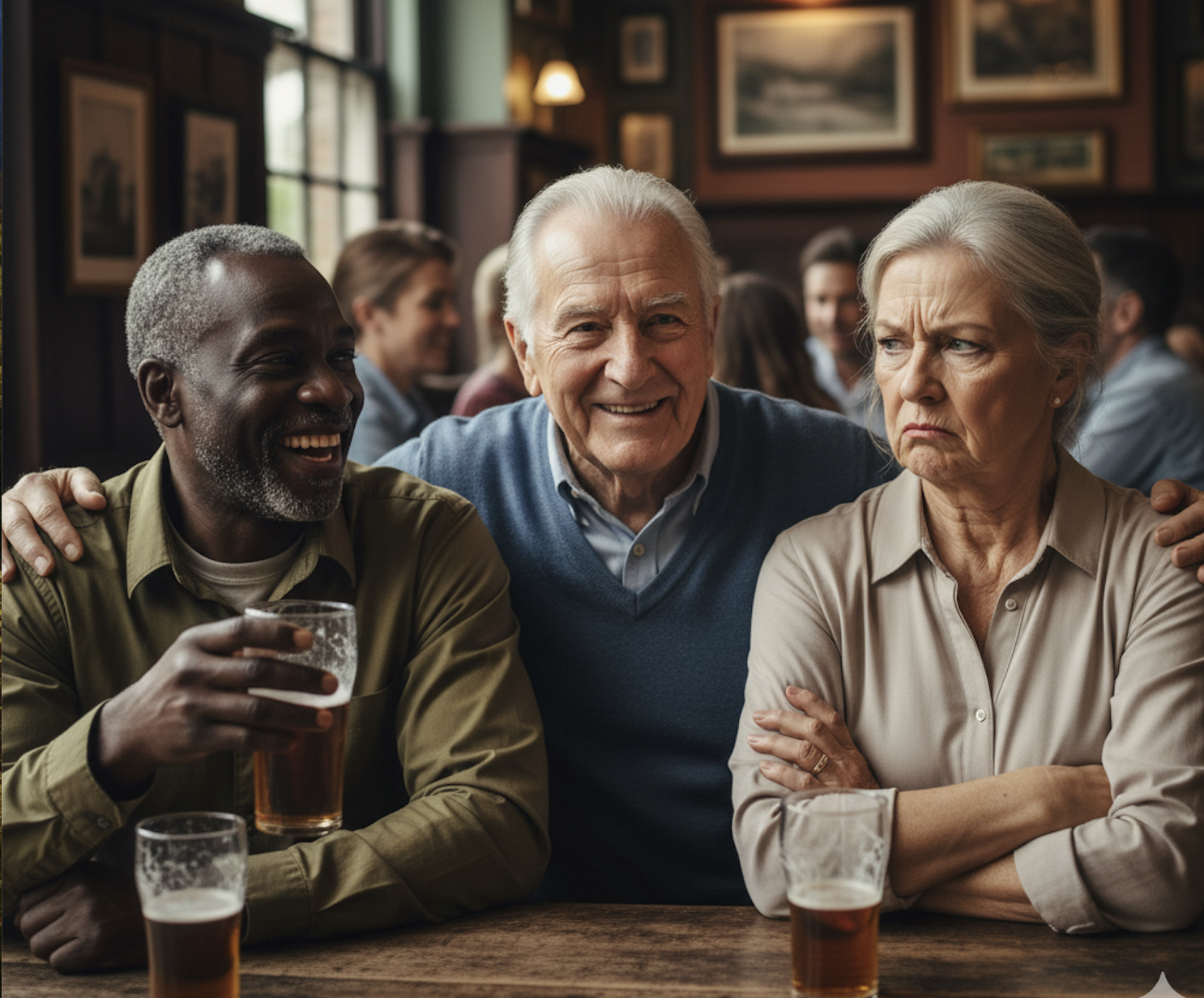It Goes Both Ways: Friendships Can Be Helpful And Healthy, But Also Harmful
November 12, 2025

By now, you’re likely aware of the central role that friendships play in our lives as we get older. As the saying goes, “Friends are the family we choose,” and in fact, many of us are getting ready to celebrate a “Friendsgiving” instead of, or in addition to, whatever Thanksgiving plans we have with our family members. As much as we understand how important social engagement and connection are for our cognitive, emotional, and even physical health, it’s still enlightening to come upon new research that underscores the vital role of friends in our lives, for both better and worse.
First, let’s take a look at research expanding our understanding of the positive place of friendship as we biologically get older. Published in the journal Brain, Behavior & Immunity-Health, a new study out of Cornell and Harvard examined data from 2100 adult participants from the Midlife in the US Study, tracking the biological, psychological, and social components of aging. What the study determined was that those participants who had deep, long-term social ties- whether family, friends, or community members- appear to age more slowly on the molecular level. As the lead author of this study made clear, “A lifetime of strong relationships provides a long-term, protective buffer. This social insulation does two key things: It turns down the dial on chronic inflammation, which is like your body’s wear and tear alarm being constantly stuck in the on position…But also, it literally slows down your biological aging at a cellular level.” While the protective benefit found in this research is tied to long-term relationships, the study authors stress that it’s always a good time to invest in new relationships that can yield similar results. In essence, the connections and support you get from your friendships are not only emotional boosts- they actually can help extend your health and life span. As the lead researcher concluded, “Aging well means both staying healthy and staying connected- they’re inseparable.” So get a social gathering with friends on the calendar, and read more here.
And research seems to indicate that the type of friend you are can also boost your mood and mental health. In a new study published in Research on Aging, from data collected by the University of Michigan, researchers found that when you provide emotional support or hands-on assistance to a friend- perhaps helping around their house, cooking them a meal, or even picking up their meds- you may be doing yourself a favor as well. The emotional impact of providing that level of support to a friend can be a significant emotional boost, especially for women, even more than for men. The researchers were particularly interested in examining support that comes out of the emotional connection of friendship, rather than due to obligation because of marriage or family ties. Lead researcher Crystal Ng made clear, “People may have a stereotype that in old age, older adults usually only receive support as they are frail, but many older adults are still providing support. I wanted to study support for friends, as it is not obligatory like support for spouse, adult children, or other family members, but rather voluntary and an active form of aging and social engagement.” So reach out a helping hand to your friend, and read more here.
Yet certain friends may not be so helpful to your health. In a study cited in MedRxiv, friends who would be considered “hasslers,” i.e., people who cause us stress or conflict, or some other sort of emotional strain, may actually speed up our biological aging rather than slow it down. The ups and downs of a friendship due to emotionally mixed messages from such friends could be making you age faster than you otherwise would. In fact, those who report these “hasslers” in their lives tend to have higher rates of depression and anxiety, along with increased inflammation and cardiovascular disease. It may be due to the triggering of the body’s stress response as a result of the emotional chaos caused by this sort of friend. So before you schedule your next outing with that sort of friend, consider your own health first. The key takeaway from this study seems to be that not all friendships promote your health and well-being.







